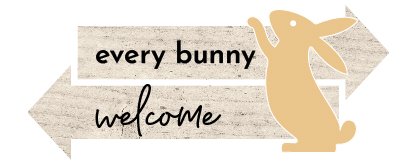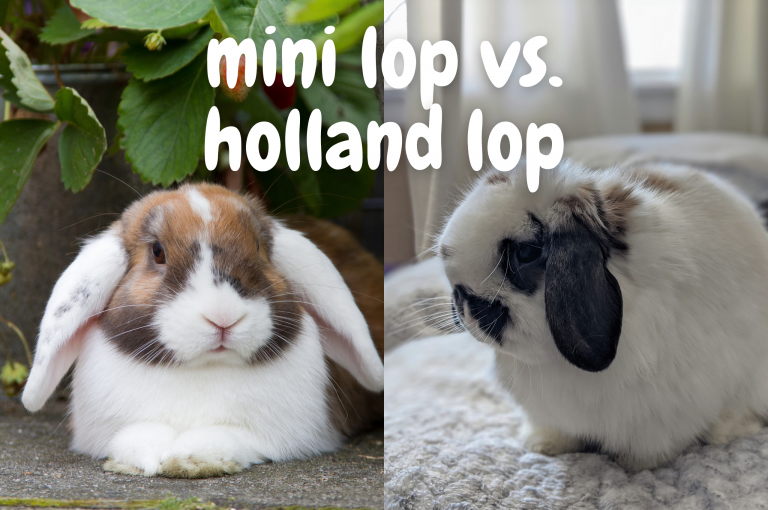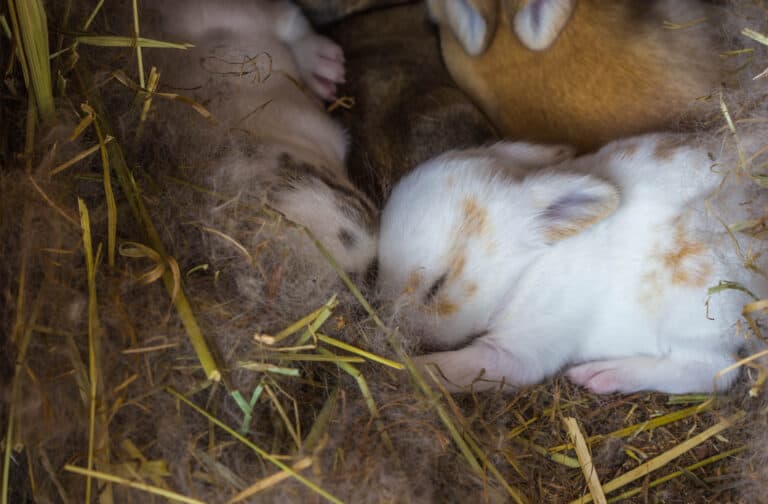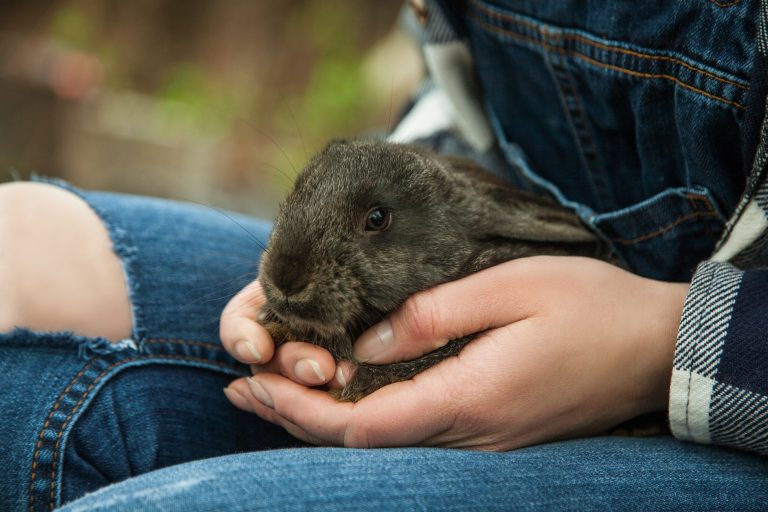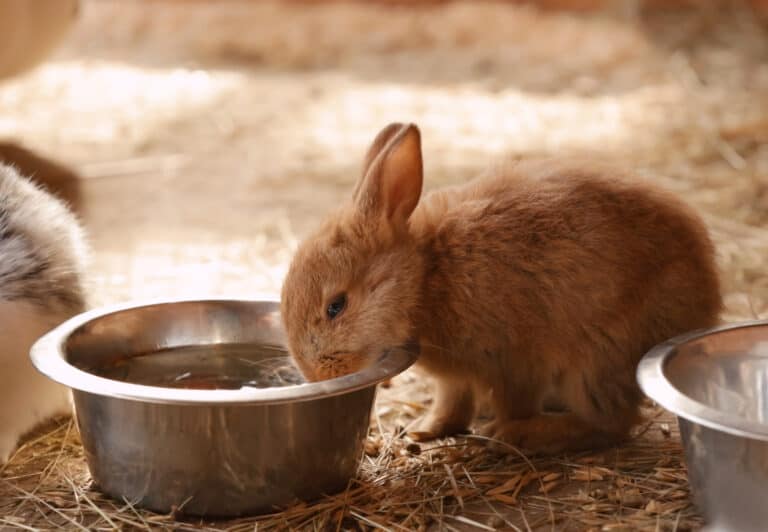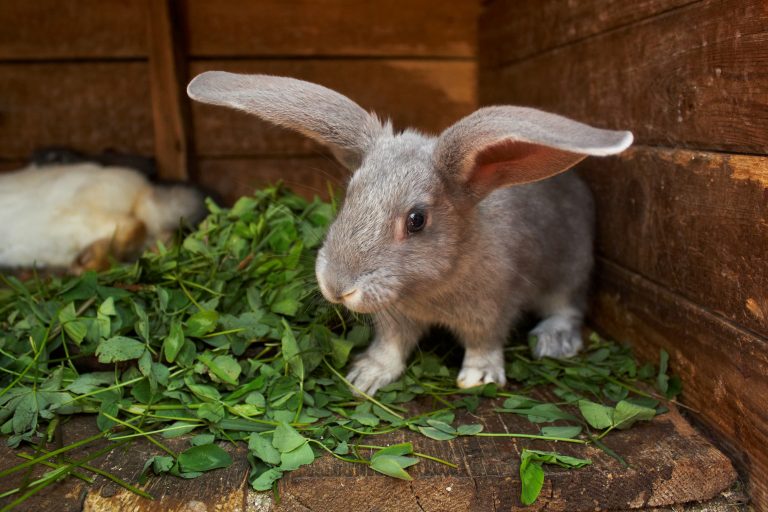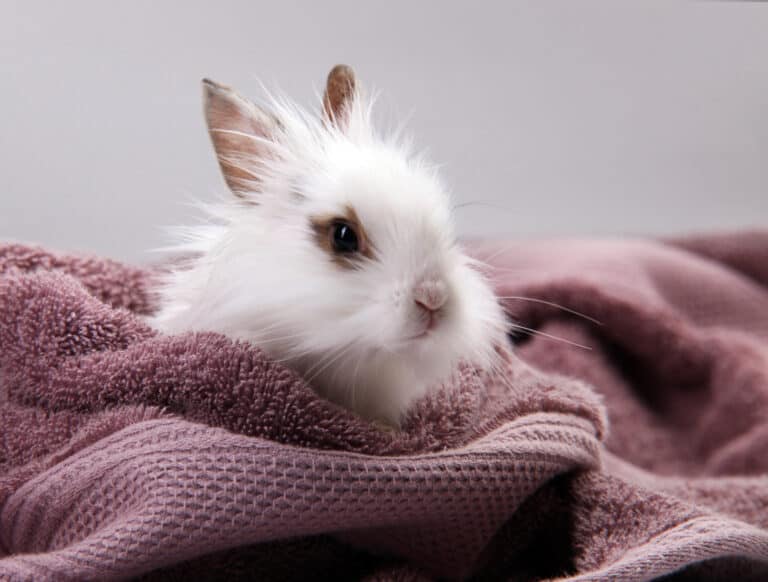Long-haired Rabbit Breeds

Bunnies are heart-meltingly cute, and more so are long-haired rabbit breeds. Those furballs, which are a bit fluffier than the rest, have an appeal that’s so hard to resist. But the adorable cuties do come with a downside. They require more grooming than buns with short hair.
Short-haired rabbits usually need brushing only around once a week, or even less when they’re not molting. In contrast, you’ll have to brush long-haired buns every day to keep their coat in top condition. Skipping that necessary chore can lead to knots and tangles on their fur.
Still, if you’re dead set on getting a bun with long hair, here are the more popular ones.
This post contains affiliate links. Affiliate links support Every Bunny Welcome at no additional cost to you. I receive a commission if you choose to make a purchase through these links.
Types of Long-haired Rabbit Breeds
1. English Angora
The long fur on this breed’s face and ears makes it look like a stuffed animal, significantly boosting the English Angora’s cuteness score.
This adorable fuzzball doesn’t get quite so big, reaching only a maximum weight of 7 pounds at maturity. But for their small size, English Angoras pack a lot of energy. They can also be pretty affectionate, which gives bun lovers more reason to go for this breed.
However, with fur so thick you can hardly see their eyes, rabbits belonging to this breed require extensive grooming to keep their coat healthy and looking good.
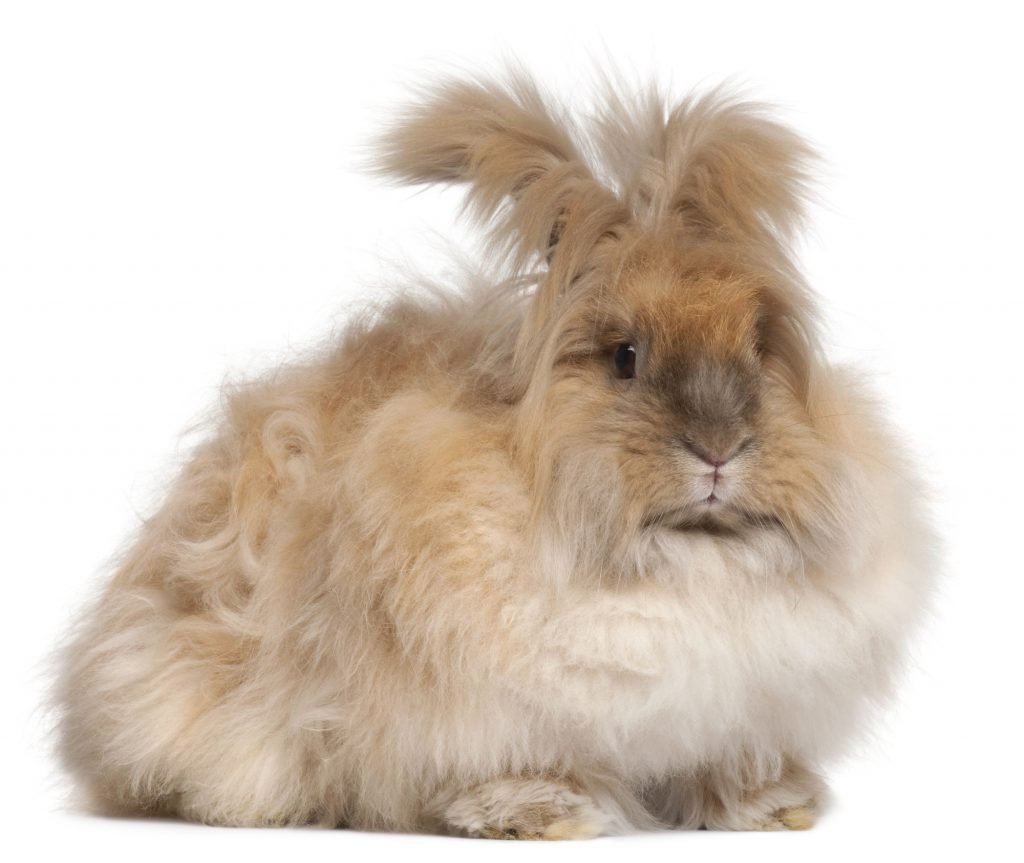
2. Lionhead
The fur around this bun’s head and neck looks like a mane, which gives the breed its name. This rabbit’s coat is thick and soft, and it comes in various colors and patterns.
Although the Lionhead has a stocky build and a large head, buns belonging to this breed are a bit on the small side as adults barely reach a weight of 4 pounds.
Gentle in nature and oozing with charm, the Lionhead is quite popular among fur parents. Take note, however, that despite their size, these cuties need plenty of space to jump and play.
3. Giant Rabbit
They are called Giant for nothing. As you can very well assume, rabbits belonging to this breed reach a considerable size. In fact, they are the biggest among their kin, with some members reaching a maximum weight of 13 pounds.
All buns that fall under this category have red eyes and a white coat.
With a dense undercoat topped by thick, luxurious fur, you can imagine how much grooming Giant rabbits require. Add to that, they need a high-protein diet to keep their coat in top condition.
Still, many fur parents go for these buns despite their size and special feeding requirements. That’s because the sweet and gentle personality of Giant rabbits more than makes up for the effort that goes into their upkeep.
4. American Fuzzy Lop
With a weight that reaches only around 3-4 pounds in adulthood, the American Fuzzy Lop makes it to the list of one of the smallest breeds of rabbits. But their size doesn’t mean you can keep your pet in a small cage as this energetic bunny still needs a lot of space to exercise.
Their flat face, in addition to their long, fuzzy ears that flop to the sides of their heads, give the American Fuzzy Lop an irresistible appeal. What’s more, their curious, playful, and affectionate nature makes them great companion animals.
The wool-like fur of this bun breed needs regular brushing. Otherwise, mats and tangles can form quickly, especially around the tail area.
5. Jersey Wooly
Like the American Fuzzy Lop, the Jersey Wooly is another itty-bitty bunny, reaching a weight of only around three and a half pounds when fully grown.
Rabbits in this breed have adorable faces brought about by a combination of perky ears, pointed noses, and large, soulful eyes.
They are also very gentle creatures who’ll enjoy being petted and held. They’re known as “the rabbit who doesn’t kick” after all. Still, Jersey Woolies are pretty energetic, so don’t expect them to sit still on your lap for long periods.
Like with other long-haired bunny breeds, the Jersey Wooly’s coat needs special attention. Regular grooming is a must, and you’ll have to watch what you feed them, making sure you give them a healthy balance of leafy greens, pellets, fruits, and veggies.

Grooming Requirements of Long-haired Rabbit Breeds
You can’t get at the thick undercoats of long-haired rabbits by simply combing their top layer of fur. You’ll need to lift the upper segments to reach the dense undercoats and give the hair the brushing it needs. Remember that rabbits have sensitive skin, so be very gentle when you take care of the mats and tangles.
Here are some points to consider when you groom your long-haired bun:
- Don’t let your bun’s fur get wet: Wet hair quickly leads to matting and tangling. So make sure that water bottles and containers are properly situated and secured so they do not drench your pet.
- Don’t ignore knots and tangles: Knots, mats, and tangles only get worse over time. You can easily tease apart small tangles and knots, but larger ones will require cutting or trimming with scissors or electric trimmers.
- Brush your rabbit carefully but thoroughly: You might not be able to spot matted fur hidden under the dense coat. You’ll need to brush the entire length of hair up to the skin using gentle strokes to ensure that your pet’s coat is completely tangle-free.
- Trim mats and tangles carefully: Long fur can hide skin folds and nipples. So take extra care when cutting the knots, especially in areas around legs, necks, and ears, to avoid accidentally injuring your bun.
- Beware of hidden debris: Pieces of hay, litter, or bedding can work their way into your rabbit’s long fur and cause matting. Check regularly to ensure that none of these objects get into your pet’s coat.
Special Tools You’ll Need for Grooming Your Long-haired Rabbit
Aside from the regular grooming essentials buns require, long-haired breeds need additional equipment. These include:
- A shedding brush, otherwise known as a slicker, will remove your bun’s shed fur.
- A furminator is similar to a brush. This tool gets rid of excess undercoat hair without damaging the topcoat.
Long-haired rabbit breeds are cute, soft, and cuddly. They make great pets, too. So if you don’t mind the extra effort you’ll put into their grooming, then you’re in for a delightful experience when you take home your fluffy fur baby.
We hope you enjoyed this post! If you did, will you give it a share or two 🙂 Thank you! ~from Every Bunny Welcome
